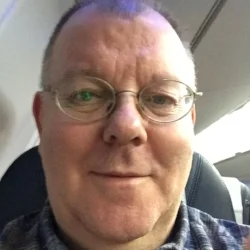Inkjet Ink Characterisation
Viscosity, dispersions, jetting & surfaces
Wednesday 24 - Thursday 25 January 2018
Ayre Hotel Astoria Palace, Valencia, Spain
COURSE FOCUS
Development of high quality inks and fluids for inkjet applications requires state-of-the-art characterisation equipment and techniques. From fundamental ink properties such as viscosity and surface tension, which have a crucial impact on jetting performance, through analysis of particulates dispersed within the ink, understanding these properties is key to getting the best out of an ink development project. In addition, it is vital to understand how the developed ink actually behaves, both on ejection from the printhead and when landing onto the substrate of choice.
The Inkjet Ink Characterisation course gives an excellent introduction to these essential areas of study, presented by industry experts from leading suppliers and institutions in the field. The course will give you the basic foundations as well as a more detailed understanding of the vital equipment and techniques.
Live Demonstrations
As part of the course, there will be demonstrations using a JetXpert drop visualisation system - your chance to see the system in action.
COURSE OUTLINE
Wednesday 24 January 2018
08:00 - 09:00 Registration
09:00 Course begins
Particle analysis
Dr Anne Virden, Malvern Instruments
- Particle analysis - introduction
- Basic techniques
- Pros and cons
- Light scattering - the science
- Practical examples
12:30 - 13:30 Lunch
13:30 Session begins
Basic property measurements - rheology
Mats Larsson, Malvern Instruments
- Rheology - introduction
- Basic techniques
- Pros and cons
- Theory of measurement
- Rheology in action
Basic property measurements - surface tension
Dr Thomas Willers, Krüss
- Surface tension - introduction
- Relevance to droplet formation and spreading in inkjet printing
- Interplay of surface tension and viscosity in drop formation
- Impacts on wetting
- How to optimise ink-substrate adhesion and spreading
- Interfacial rheology and its relevance to drying
- Theories and methods of measurement - compared and contrasted
- Application examples from inkjet industry
17:00 Session ends
18:00 - 19:00 Reception
Join us for beers, wines and good company!
Thursday 25 January 2018
09:00 Session begins
Jetting and print quality analysis
Dr Mark Bale, ImageXpert
- Introduction to drop analysis
- How is in-flight analysis used?
- Drop formation
- Reliability
- Misting
- Nozzle-to-nozzle consistency
- Drop measurement
- Simple application examples
- Overview of techniques
- Fundamental measurements
- Practical demonstration
- Introduction to print quality analysis
- How is print quality analysis used?
- Dot properties
- Line properties
- Solid area quality
- Colour registration
- Ink interaction
- Overview of techniques
- Practical examples
12:30 Course ends
COURSE LEADERS
Mats Larsson, Technical Product Specialist - Rheology
Malvern Instruments, Sweden
Since 2010, Mats has been responsible for technical and application support to customers for the Malvern rheometers product line. He is also involved in rheology training and seminars.
Dr Anne Virden, Product Technical Specialist
Malvern Instruments, UK
Anne Virden is a Product Technical Specialist for Diffraction and Analytical Imaging at Malvern Instruments. This role involves supporting customers using Malvern’s laser diffraction and analytical imaging systems to measure particle size and shape in dry powders, suspensions, emulsions and sprays. Anne joined Malvern Instruments in 2007 with a PhD in Physics from the University of York, and has built up a wide ranging experience of particle characterisation in industries such as paints and pigments, pharmaceuticals, mining and minerals, and is a particular expert in the measurement of spray systems.
Dr Thomas Willers, Head of Applications & Science
KRÜSS, Germany
Dr Thomas Willers studied physics in Cologne and Barcelona. He received his PhD degree in experimental physics at the University of Cologne. In 2012 he joined KRÜSS GmbH at its headquarters in Hamburg where he is now head of the department for Applications & Science. He is responsible for the KRÜSS Application Labs as well as teaching activities and now has more than five years’ experience in teaching surface science.
Dr Mark Bale, Consultant
ImageXpert, USA
Mark Bale is a consultant with ImageXpert Inc, operating out of the UK to support European customers. He received his MPhys in Physics (1997) and his PhD in Nanoscale Physics (2001) both from University of Birmingham. Having worked in Sun Chemical’s UK Inkjet R&D Labs for 10 years he brings ink expertise and process knowhow to the application of ImageXpert laboratory equipment to solve real life inkjet printing challenges.






